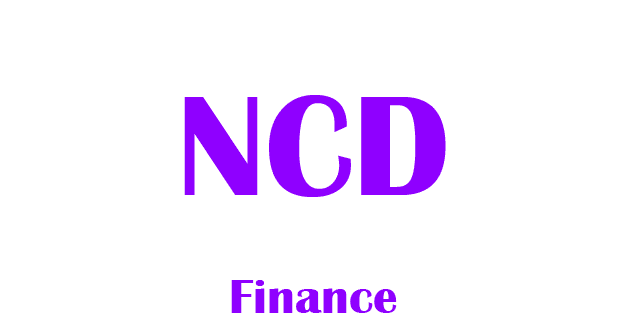Question: What is the full form of NCD in finance?
NCD stands for “Non-Convertible Debenture.” Let’s break down this term to understand its essence:
- Non-Convertible: In financial terms, ‘convertibility’ refers to the ability of a security to be converted into another form, often equity shares. Non-convertible, therefore, signifies that the debenture cannot be converted into shares of the issuing company.
- Debenture: A debenture is a debt instrument issued by a company or a government entity, acknowledging a loan and specifying the terms of repayment.
Combining these elements, a Non-Convertible Debenture is a type of debt security that, unlike convertible debentures, cannot be exchanged for equity shares. NCDs are issued by companies as a means of raising capital, and they play a crucial role in diversifying investment portfolios.
Key Features of Non-Convertible Debentures (NCD):
- Fixed Interest Rates: NCDs typically offer investors fixed interest rates, providing a predictable income stream over the tenor of the debenture.
- Tenor and Maturity: NCDs come with a specified tenor, which is the duration of the investment. Investors receive the principal amount along with accumulated interest at the end of the maturity period.
- Risk and Returns: While NCDs offer a more stable and predictable income compared to equity investments, they are not entirely risk-free. Investors should assess the credit rating of the issuing company to gauge the risk associated with the investment.
- Liquidity: NCDs can be traded on the stock exchange, providing a degree of liquidity to investors. However, liquidity levels may vary based on market conditions and the specific terms of the NCD.
Investor Considerations
Understanding the NCD full form in finance is just the first step for potential investors. Here are some considerations for those contemplating NCD investments:
- Risk Assessment: Assess the credit rating of the issuing entity to gauge the risk associated with the NCD. Higher-rated NCDs generally indicate lower credit risk.
- Interest Rates: Compare the interest rates offered by different NCDs. Higher rates may seem attractive, but they often come with higher associated risks.
- Market Conditions: Keep an eye on market conditions, as they can impact the liquidity and tradability of NCDs.
- Diversification: As with any investment, diversification is key. Consider including NCDs as part of a diversified investment portfolio to manage risk effectively.
In conclusion, understanding the NCD full form in finance sheds light on a vital aspect of the financial markets. Non-Convertible Debentures offer investors an avenue for fixed-income investments, presenting a balance between risk and returns. As with any financial decision, thorough research and careful consideration of individual circumstances are crucial before venturing into NCD investments.



